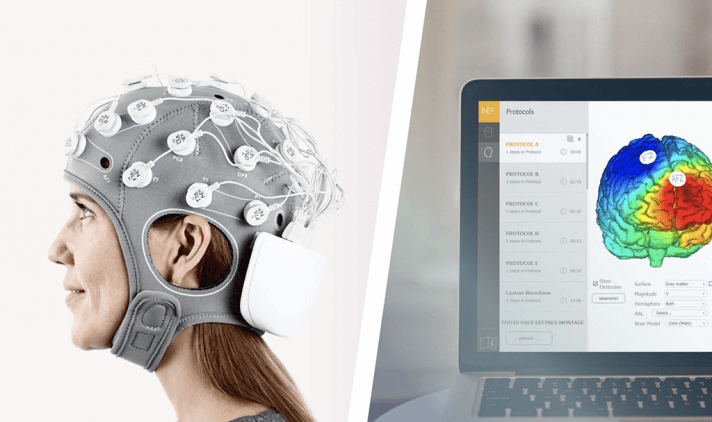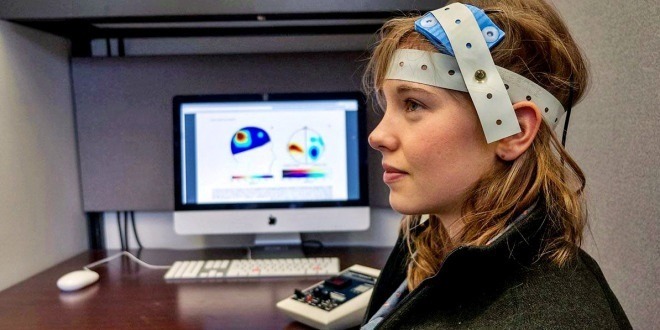Posts Tagged ‘Transcranial-direct-current-stimulation’
Combined tDCS neurostimulation and cognitive training found to improve working memory among older adults–especially those with lower starting capacity
Giving memory a lift: Can games and brain stimulation do it? (MedicalNewsToday): A person’s working memory may decline with age or if they have dementia, Parkinson’s disease, or have had a stroke. When this occurs, the loss can affect their day-to-day quality of life, turning even simple tasks into often-demoralizing challenges.
Read MoreOn centenarians, memory, Mars, tDCS, ADHD, digital health, beautiful brains, and more
Welcome to a new edition of SharpBrains’ e‑newsletter, featuring ten timely resources and research findings for lifelong brain and mental fitness. #1. Let’s start with a fascinating story and study :-) Study with 330 centenarians finds that cognitive decline is not inevitable … (Henne Holstege, PhD, assistant professor at Amsterdam University Medical Center) said her interest in researching…
Read MoreEmerging applications of transcranial Direct Current Stimulation (tDCS): e‑sports skills training, cognitive enhancement in older adults
10 Minutes of Electrical Stimulation During Gaming Helps Improve e‑Sports Skills (Technology Networks): Researchers at Lero, the Science Foundation Ireland Research Centre for Software and University of Limerick (UL), have found video gamers can significantly improve their esport skills by training for just 10 minutes a day. The research team at Lero’s Esports Science Research Lab…
Read MoreNeuromodulation developer Halo Neuroscience closes its doors; Flow Neuroscience acquires assets
Flow acquires brain stimulation technology developer Halo (Medical Device Network): Flow Neuroscience has acquired the assets of brain stimulation technology developer Halo Neuroscience to advance its research into depression and other mental health disorder treatments.
Read MoreGrowing debate about the ethics and regulation of direct-to-consumer transcranial direct current stimulation (tDCS)
___ According to the advertising hype, you too can enjoy incredible neural and psychological benefits in the comfort of your own home by using a simple electrical device that offers transcranial direct current stimulation (tDCS). For instance, three different models of tDCS devices sold online claim to improve mood, increase creativity, enhance memory, accelerate learning,…
Read MoreUpdate: Only 5% of US children ages 8–11 follow guidelines recommended for brain development
___ Dear reader, Time for SharpBrains monthly e‑newsletter, discussing the latest innovations for brain health and mental health, and opening in this occasion with an important wake-up call. New research: Only 5% of US children ages 8–11 follow screen time, sleep and exercise guidelines recommended for brain development Neurofeedback or medication to treat ADHD? New study reinforces…
Read More





